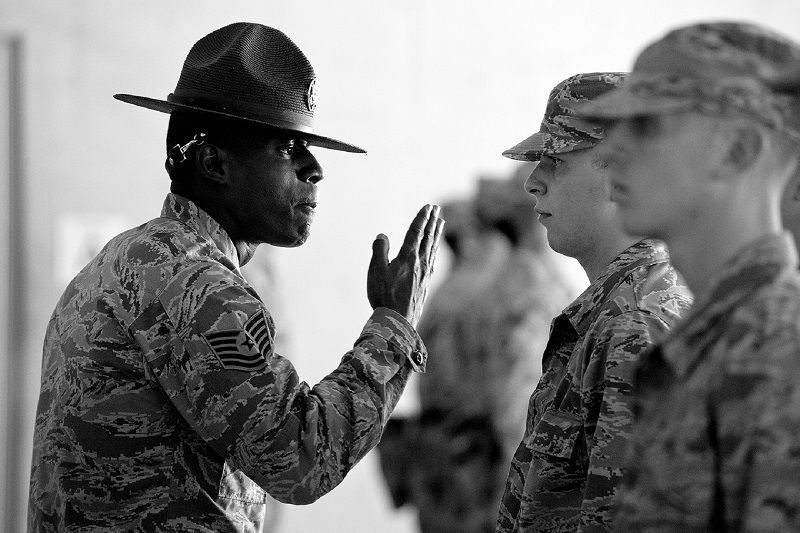
What is the respect in your company really about?
Abilio Diniz is a Brazilian businessman who once went into a long conflict with his French business partner. He was fighting for control over a big company that he had built from scratch with his father. Abilio was a majority stakeholder but the Frenchman had the controlling interest. The dispute was so bitter that Financial Times named it “one of the biggest international rivalries in history”.
Abilio claimed that the Frenchman didn’t show him any respect. It led to him bursting with anger during the meetings, criticizing, and thus building up the conflict. Negotiations were harder and harder, and seemed to last forever.
Looking off, I would venture to say that the challenge in running a company isn’t just to find customers, create a good product or fit into the market. Those are really important, money is the business’ blood. But something completely different is far more challenging.
One of my first posts on the “Turquoise Startup” fanpage (pol: Turkusowy Startup) was about rules that lead to the company’s success. I still fully agree with those.
But speaking more generally, all of those 12 rules concern relations inside the company. Today I would like to expand on the topic and find a way to make every answer for those questions always a “YES” and to show what respect, that Abilio Diniz spoke of, has in common with them.
If you have read my post about the Marco company from Gliwice run by Marek Śliboda, then you have probably also seen their publicity films where the chairman’s quote appears at the beginning:
Without the respect for people and ongoing improvement there cannot be a long term success

Do you really think that it makes sense? I will try to show you that it does.
I am really impressed by the books of an American negotiation specialist William Ury. He has written e.g. “Getting to Yes” or “The Power of a Positive No”. Abilio’s conflict comes from one of his books “Getting to Yes with Yourself”. The book doesn’t focus merely on respect. This is only one out of six elements that William writes about. But I think that it is the most important one. By following the rules that he had written about, William Ury made the conflict of Abilio Diniz come to an end in just four days.
When Abilio Diniz burst with anger during the talks with his partner, the other man started to feel disrespected. It is completely natural and works with any kind of behavior. If anyone attacks you, you will feel the need to answer him with the same thing.

But you have a choice. Between the feeling that emerges inside of you and your response, there is that short moment when you can make a decision on what to do. If somebody is shouting at you, throwing accusations and doesn’t let you speak, you can answer with the same thing. And you will probably feel justified.
But as intelligent human beings we have the possibility to react differently. You can look at the situation from other perspective, look at your jaws clenching and your face reddening, you can be curious about what is happening with you and not react impulsively. Because attack will be a reason for further attack. However, if you find some respect, it is really possible that your opponent will also respect you. Of course I am also speaking about self-respect right here. If somebody is shouting at you, then it’s not ok, but you can go against such behavior and show that person some respect at the same time.
Respect is the first step towards lots of great things. If you show it, you will also abandon unfair judging. And if you don’t judge, it will be easier for you to understand other people’s problems. This brings empathy which is really helpful when resolving conflicts.
Dennis Williams used to be a labor leader in a big company. For years, there had been a tension between the employer and the union men. One day, there were forty people from the leadership and only twenty people from trade unions in the meeting hall. They were set to take up negotiations concerning new labor contracts.
The manager who represented the leadership started out with an ascertainment: “We are here only because the law makes us do so. We don’t trust you and we don’t like what you are doing”.
Do you sense any respect towards the union men? Or maybe a disregard? If you were there, how would you react?
Dennis Williams wanted to attack, it made his blood boil but he mustered up some respect. “I hear what you are saying and I will tell you why we’re here. We are here to see if we can cooperate, so that we hammer out the best solution for your employees – dozens of thousands of people thanks to whom this company is thriving.
Such behavior is definitely neither easy nor natural. What’s natural is the thought that somebody doesn’t deserve our respect and that he has to work for it. If somebody hurts me, I also hurt him. If somebody attacks me, I also attack. But this leads only to devastation.
That one answer from Dennis Williams set the tone for any further negotiations and thus eventually led to the agreement – it was one of three cases in the company’s 60-year history when there was no bigger fight needed to achieve it.
Respect isn’t really about accepting or liking somebody. To show respect, you don’t have to agree with the person.
But to show respect towards other people, you have to show respect towards yourself at first. Take care of your needs, accept yourself as you are, and take responsibility for your actions.
But even when it’s hard for you to show respect, especially during arguments, William Ury gives you three steps to achieve it.
Step 1. Put yourself in the other person’s shoes.
William Ury mentions the talks with Syrian leaders of the uprising held on the Turkish-Syrian border. There was a conversation with a very radical Muslim and a leader of a three-thousand-men army. Such people are known as fundamentalists and terrorists on the news. During the negotiations, it turned out that before he joined the fight, he had been studying at the university. Poetry. He had gotten his first international prize for his fertileness. One of his poems had been considered treasonous by the security service. He had been tortured, his partners had been murdered and he had lost touch with the woman that he had fell in love with.

That conversation erased the fundamentalist stereotype that William had had in his mind and let him understand why the man had joined the rebels. Of course it doesn’t justify his murders, but it makes it easier to understand the situation.
Step 2. Broaden your respect sphere.
How many times have you felt rejected? Children feel great pain when their parents abandon or ignore them. But even not being picked in PE games can be hard for them. And when we grow up and our boss doesn’t invite us to a business meeting or our colleagues forget to inform us about going out for a beer?

After the management of Barry-Wehmiller had changed, William Ury talked to the laborers on what were their thoughts on their job after that change. The employees were listened to, asked for their opinions, and their ideas and suggestions were often accepted. But a really important event was when during financial crisis in 2008, when the rival companies started firing people in order to cut costs. The same could have been done by Barry-Wehmiller.
But the employees were given a choice. Robert Champan, the chief executive, offered everyone a six-week furlough so that no one would have to be fired. He showed them that they were all important – he didn’t reject anyone. Before and after the crisis lots of similar companies were closed but Barry-Wehmiller still exists, employing 11 thousand people.

What’s more, Robert Champan wrote a book about it, and the company is gaining popularity because of how it treats its employees. In their publicity film, there’s a teen who says these, how true, words:
Why would you want to take the risk for people that don’t treat you well? Why would you want to do something more than you have to for them?
Step 3. Respect them even if they reject you.
It’s easy to accept a person who accepts us. But when someone rejects us, our instinct tells us to strike back.
Dennis Williams, the leader of the union men, made something completely different, though. He shocked everyone and instead of striking back, he responded with respect. This is also one of the main rules of negotiators while talking to kidnappers or terrorists. If they reacted explosively, the bombs would immediately explode and people would die.
This doesn’t of course mean that they accept the terrorists’ demands. Quite the opposite – but they do it in a positive way, with respect towards them.
The first step is always showing respect towards yourself, your needs. If you do it, showing other people respect and accepting them will be much easier.